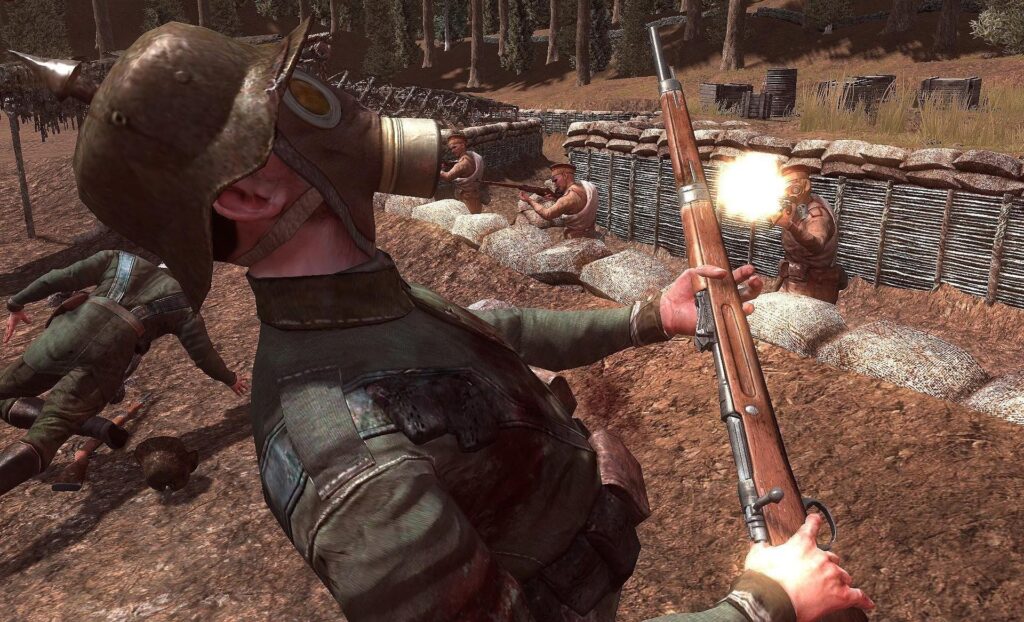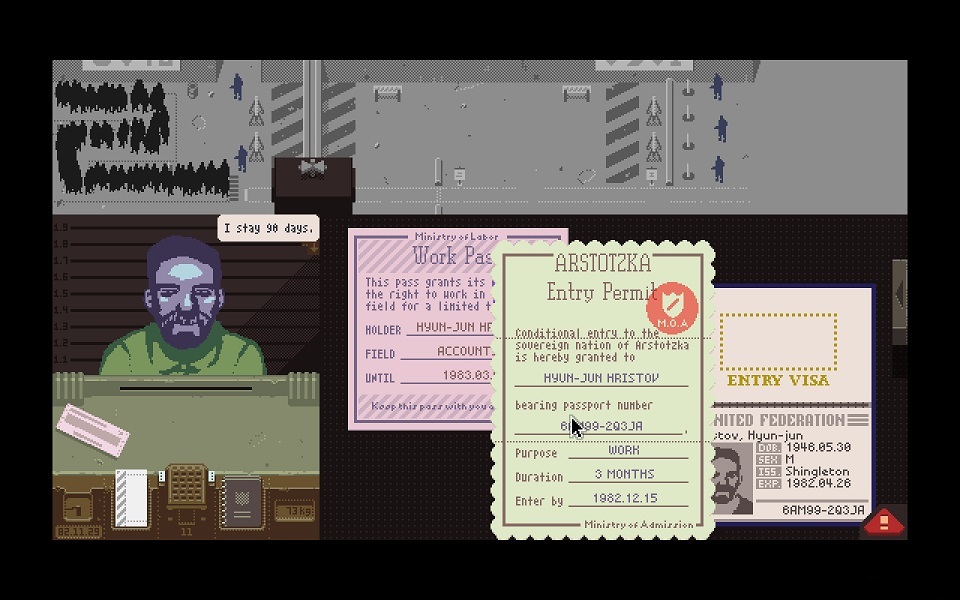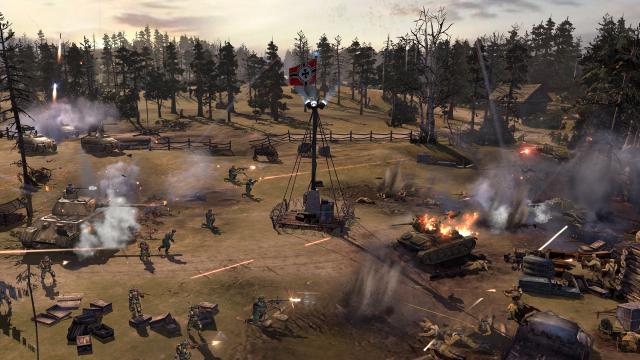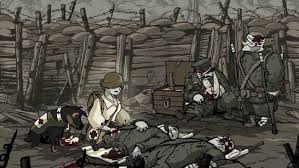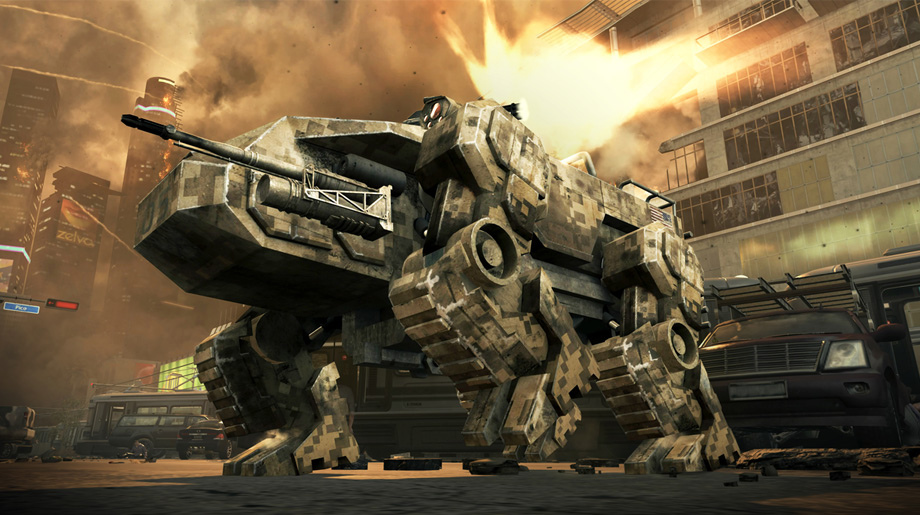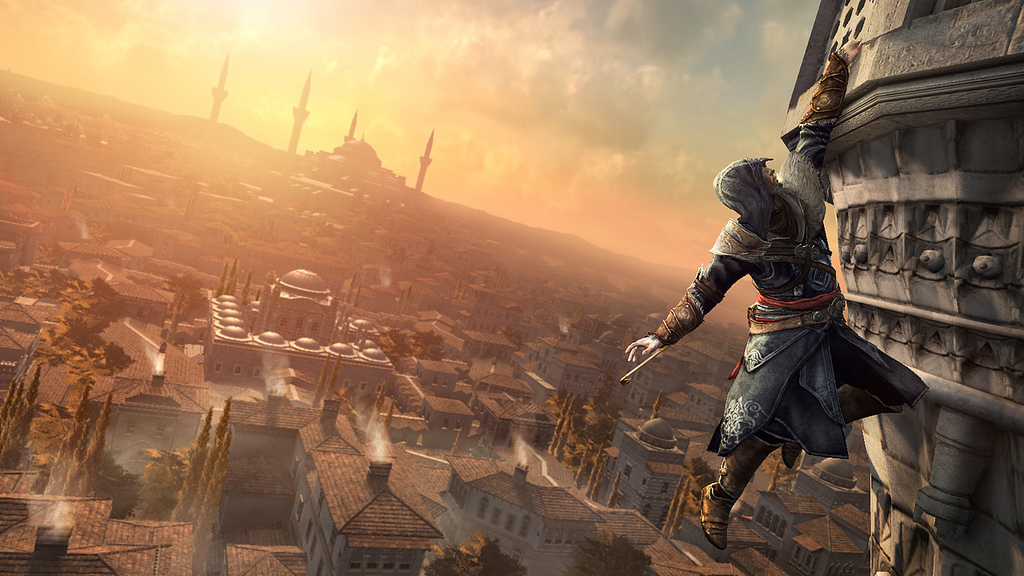The beauty of video games is that they can take you to any point in space and time you can possibly dream up. Want to run a cobalt trading operation between two regions of the Milky Way? Elite: Dangerous has you covered. Want to play as a mutant monster hunter caught in the middle of an empire-wide war? Look no further than The Witcher franchise.
But if you’re a game designer, there’s a strong case to be made for setting the action in a real-world, historical setting. To illustrate, we’ll delve into the example of World War I as a setting for games.
“Where Are All the Good World War I Games?”
It’s an interesting question.
The number of games set in a post-apocalyptic future is gigantic. Game developers have also seen a lot of success using World War II as the backdrop — in fact, the list of WWII games is longer than you could shake a bayonet at.
On the other hand, the list of World War I games that have ever been created since the infancy of video gaming is surprisingly stark (and of those, the majority are flight sims).
There are some very valid arguments to be made as to why The War to End All Wars isn’t an ideal setting for a video game (or, at least, less ideal than WWII), and they’re perhaps deserving of their own separate article. But suffice it to say, nobody thought a game about processing paperwork in a grey, pseudo-Soviet setting was a thrilling idea until “Papers, Please” came along.
If the idea of turning one of the darkest, bloodiest and most senseless wars in recent history into fodder for a video game sounds like it would be in bad taste … well, it doesn’t need to be that way.
Preserving a Fading Time
While the principle purpose of video games is entertainment, it’s not the only benefit that can come from playing them: they’re also a medium for education.
Continuing with our WWI example, very few — if any — among us can truly appreciate the realities of WWI. An interactive medium like gaming, perhaps even more so than extensive reading about the war, has the capacity to help us empathize with the situation in which millions of soldiers found themselves.
The reason this is both poignant (when handled right) and important is that this is a monumental world event that is quickly fading from living memory — the last surviving veteran of World War I, Florence Green, passed away in 2012.
Two reasons game developers shy away from this period? Firstly, it’s a war from which there are comparatively fewer records, first-person accounts or artifacts from which to draw inspiration. Secondly, it was a very complicated war from a political standpoint, set it a world markedly different from our own (the political climate behind the second World War are more readily understandable, and it’s easier to differentiate between the heroes and evil parties).
Valiant Hearts: The Great War
But these are also precisely the reasons why video gaming should step up to the mantle and represent this time for the benefit of modern players (and it’s not as if there isn’t a market for gamers who want to see historical accuracy in games).
If done well, any historical games — not just those set around WWI — can be a big win all around: profitable for developers, entertaining for players, genre-pushing for the industry and preserving a little slice of history to boot.
Identifying Trends for Art and Profit
It may well be that non-RTS games set around WWI are fundamentally difficult, but that era does serve as a good case study and opens up a wider discussion on how public interest in certain historical periods influences the game industry.
It’s little surprise that COD and Battlefield games set in the Middle East dominated the charts during the 2000s, given the real-world events of that decade. Outside of modern warfare, we’re seeing a lot of Viking-inspired games coming out on Steam this year — it could be the case that this trend is being fueled by the spectacular HBO show “Vikings” and the success of the “How to Train Your Dragon” franchise.
Or, alternatively, the slew of archeological findings from that period may have spawned a resurgence in public interest, which in turn has shaped gaming and movie trends.
Whichever way around it may be, it’s our job as game designers to identify such trends and deliver a quality gaming experience around them, ideally before everyone hops on the trend and it becomes oversaturated. After all, it would be somewhat foolhardy to make a COD-esque FPS in the current market.
But if you can be the first to identify a nonfiction story or era that has yet to receive an amazing game treatment?
That’s the holy grail right there.
Ready to learn more about Game Design? Check out our Game Design programs at New York Film Academy.

